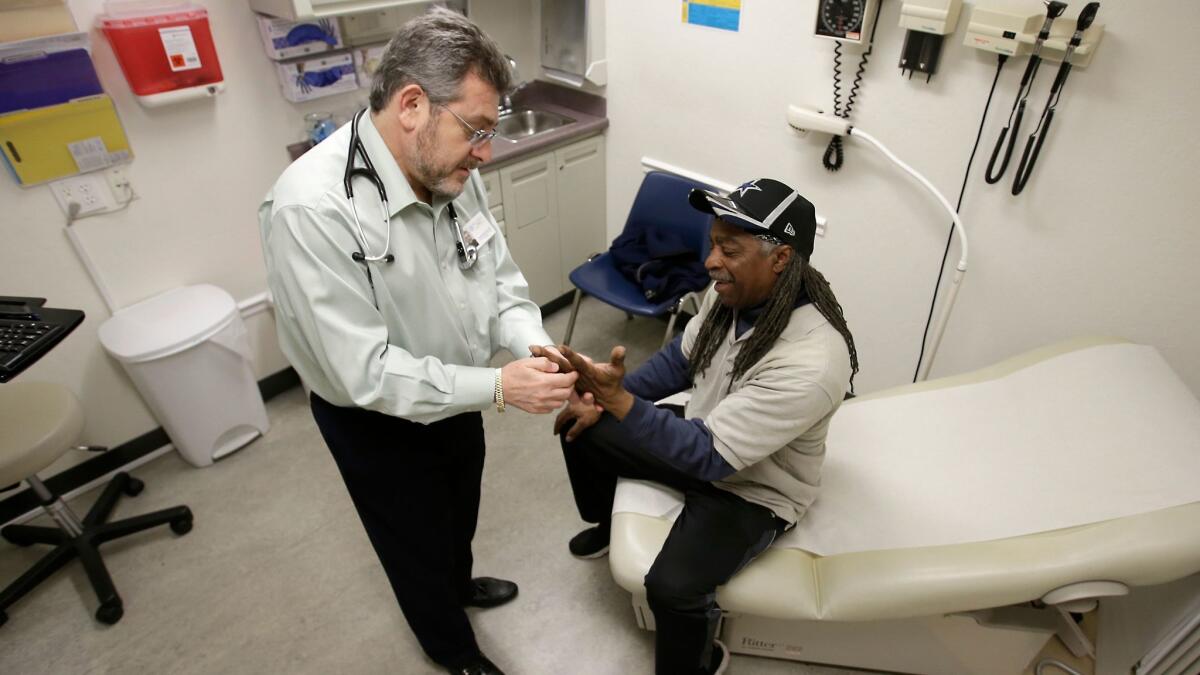Opinion: Withholding bad medical news doesn’t help patients

To the editor: Dr. Tom Roberts makes an important point about the most difficult medical conversations, but these communications aren’t always about imminent death of a loved one. (“I learned more about breaking bad news from business school than medical school,” June 27)
I did my best to take care of my younger sister and her battle with a particularly sinister form of dementia. None of the many specialists we visited over the five years of her demise had the courage to tell me her exact diagnosis. The first time I heard of her specific malady was when I read it on her death certificate: Lewy Body Dementia.
Had I known about this radical brain disease, I could have researched and been better prepared for her and my family.
All medical practices need to have someone whose special responsibility it is to translate bad news. This person need not be a doctor, just someone who has a gentle bearing and caring instincts.
Mark Dressler, San Juan Capistrano
..
To the editor: The statistics Roberts cited are disheartening: Forty-two percent of medical school graduates were never taught how to talk to patients about dying, and 48% reported they never received feedback on how they deliver bad news.
End-of-life conversations are difficult in part because they take time. They are more emotional than technical, and the information provided cannot be vague and impersonal. Physicians need to ascertain patients’ wishes so they can work together to grant them.
This is as valid a part of the treatment plan as the treatment itself. And it is sorely lacking.
Deb Rothschild, Palm Desert
..
To the editor: As my retirement from medicine nears, I find myself wishing more than ever that I had saved a nickel for every time I’ve has to read the latest discovery from a medical student or resident who must let us all know a Fundamental Truth we have neglected as a profession.
In an op-ed article that could serve as a classic example of self parody, Roberts uses a conversation with a flustered nurse and the fact that a doctor checked his phone while talking to let us know that his Stanford business professors do a much better job with “difficult conversations.” Sure, except that many of these conversations involve firing people or evictions or explaining to reporters that your company wasn’t really liable for those product-related deaths.
In the future, Roberts can use his business school smarts to explain why your co-pays are climbing, your MRI won’t be covered, or why the doctors working for him suddenly felt they needed a new job.
Richard Williams, MD, Sunland
Follow the Opinion section on Twitter @latimesopinion and Facebook
More to Read
A cure for the common opinion
Get thought-provoking perspectives with our weekly newsletter.
You may occasionally receive promotional content from the Los Angeles Times.






